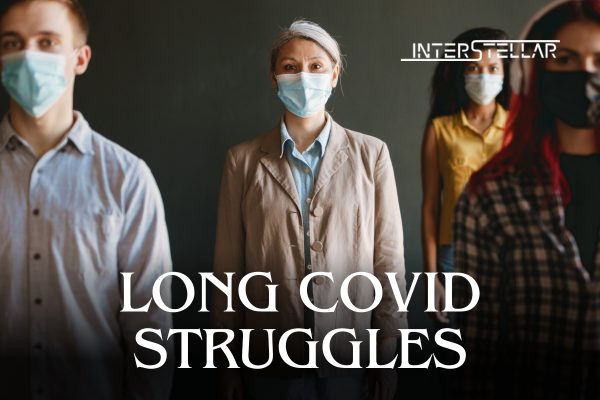Living with Long COVID: The Lingering Struggles of Millions Worldwide
After four years of living with long COVID, Kenyan businesswoman Wachuka Gichohi faces daily symptoms like severe fatigue, pain, and panic attacks. Even well-meaning phrases like “Feel better soon” or “Wishing you a quick recovery” can feel out of touch. “For me,” she explains, “it’s not going to happen.”
Limited Chances for Full Recovery
Research now shows that the longer patients endure symptoms, the slimmer their chances of full recovery. Studies from the UK and US suggest the best recovery window is within the first six months after contracting COVID-19. Patients who had milder cases or were vaccinated have a higher chance of recovering. Those whose symptoms persist for six months to two years may struggle to fully heal, while recovery becomes even less likely for those who continue to suffer for more than two years.
According to Manoj Sivan, a rehabilitation medicine professor at the University of Leeds, long-lasting cases should be seen as “persistent long COVID,” similar to chronic illnesses like chronic fatigue syndrome (ME/CFS) and fibromyalgia, which are sometimes part of long COVID or act as risk factors.
Waning Interest in Long COVID Research
Long COVID, defined as symptoms lasting three months or more after initial infection, can present a wide range of symptoms, from fatigue to joint pain. These can range from mild to disabling, and no standardised diagnostic tests or treatments exist yet, although research continues into potential causes and risk factors.
While some studies report that around one-third of people recover within a year, other studies, particularly those focused on hospitalised patients, show much lower recovery rates. In the UK, approximately two million people reported long COVID symptoms in March 2023, with nearly one-third having symptoms lasting over three years. Globally, estimates suggest that between 65 million and 200 million people suffer from long COVID, meaning millions may face prolonged health struggles.
Despite its widespread impact, funding and focus on long COVID research are declining in many countries. The US and Germany still fund studies, but in other high-income countries, resources have waned. Low- and middle-income nations rarely had funding to begin with. Amitava Banerjee, a professor at University College London, emphasises that long COVID should be viewed as a chronic condition, managed to improve lives rather than seeking an outright cure, similar to conditions like heart disease or arthritis.
Persistent Challenges for Long COVID Patients
Living with long COVID can be severely isolating. Leticia Soares from Brazil, infected in 2020, has suffered from fatigue and chronic pain ever since. As a researcher and advocate, she believes full recovery is rare after one year. For many patients, symptoms seem to improve briefly, only to return, leading to a cycle that can be mistaken for recovery.
To cope, Soares takes common treatments like antihistamines, which have shown some effectiveness in managing symptoms. However, not everyone finds relief in traditional medicine. Gichohi, whose doctor dismissed her symptoms, sought help from a functional medicine practitioner who offered a holistic approach, including trauma therapy and acupuncture. Moving to a quieter town near Mount Kenya, she adjusted her lifestyle to manage her energy levels. She also tried treatments like naltrexone and, controversially, ivermectin, which she believes helped her.
Anita Jain, a specialist at the World Health Organization, explains that for now, treatments remain experimental as researchers continue to study the condition. Patients with long COVID also face increased risks with each new COVID spike, as studies suggest re-infection can worsen symptoms.
Living with Long COVID: Resilience and Determination
Philadelphia-based cabaret singer Shannon Turner contracted COVID in early 2020 and has since dealt with extreme fatigue, pain, and heart issues. Already managing autoimmune diseases, Turner’s condition worsened after a second infection in 2023, leaving her reliant on a walker. Yet, she remains resolute, refusing to give up her music career. “I don’t want to live my life in bed,” she says, embodying the resilience shared by many long COVID sufferers worldwide.
with inputs from Reuters





